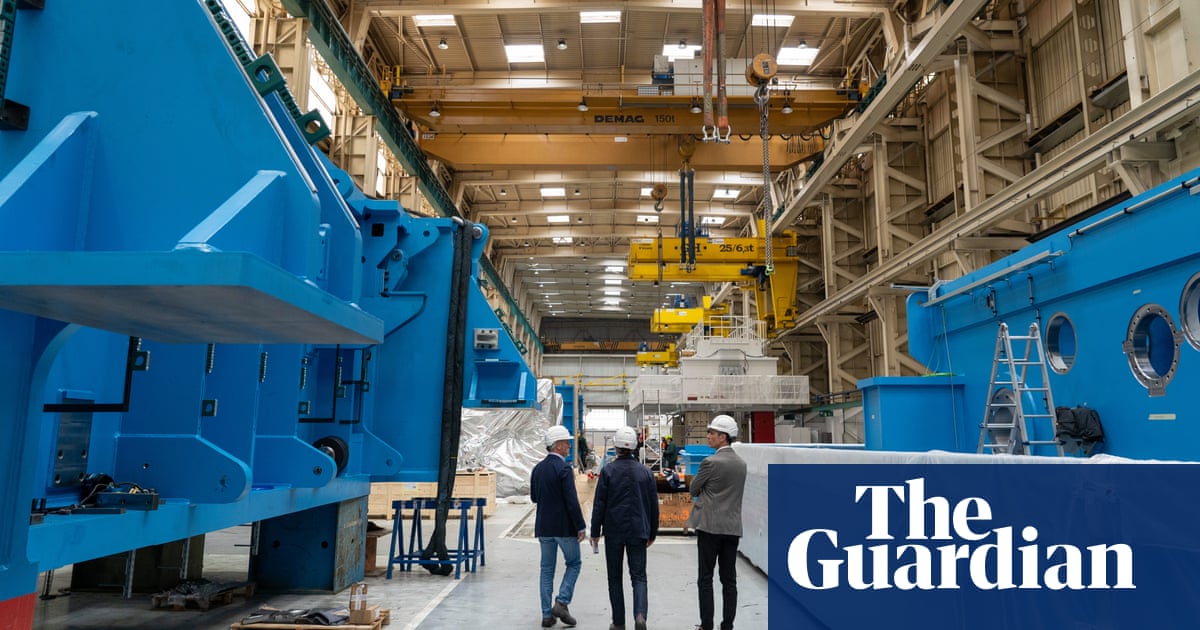When Marisa Fernández lost her husband to cancer a few years ago, her employers at the Eroski hypermarket went, she says, “above and beyond to help me through the dark days afterwards, rejigging my timetable and giving me time off when I couldn’t face coming in.”
She had a chance to return the favour recently when the store, in Arrasate-Mondragón in Spain’s Basque Country, was undergoing renovations. Fernández, 58, who started on the cashier desk 34 years ago, and now manages the store’s non-food section, volunteered to work extra shifts over the weekend along with her colleagues to ensure everything was ready for Monday morning. “It’s not just me. Everyone is ready to go the extra mile,” she says.
Such harmonious employer-worker relations are the stuff of corporate dreams, and they are no accident here: the Eroski retail chain is part of Mondragón Corporation, the largest industrial co-op in the world. As a fully signed-up member, Fernández co-owns part of the supermarket chain that also employs her. “It feels like mine,” she says. “We work hard, but it’s a totally different feeling from working for someone else.”
American here: A ton of us will call all sorts of shit communism out of ignorance because our public education system got gutted by a bunch of rich assholes.
Or Socialist. Those are the “nasty” buzzwords that get the ignorant into a frenzy.
We regulate capitalism with socialist constructs. That’s why you don’t get billed from a firefighter after a rescue, or why you pay school taxes if you own property, regardless of having children in school.
Cops love it when you remind them they’re a socialized force.
deleted by creator
I understand the ownership aspect of pure socialism, and its contrast to capitalism. That doesn’t change the fact that roads, schools, and police and fire departments are socialized through taxation. It’s not socialism, but a socialist construct.
We have some coops in the states but many are pretty small. I’d love to see big coops because of the economies of scale they can bring (and visibility to inspire more) One example which is getting bigger is Obran, out of Baltimore. They acquire businesses and convert them to worker controlled. Some others with growth potential include the drivers coop which is an alternative to Uber (primarily in NYC / Denver) and the just new Artisans Cooperative which is an alternative to etsy.
I know it’s not exactly the same but I worked for a credit union, they are member owned. All of the workers and customers are members and the members are the owners. It was a really good place to work. It was technically not-for-profit, so our surplus at the end of the year was reinvested into the institution, rather than being paid out to shareholders.
You’re right, not the same but I still love credit unions! Multiple times now they’ve given me an interest rate on auto loans that no one else could beat. Plus most recent one I got a discount because the car was electric.
I think a credit union would be considered a “consumer cooperative” because the members are people who use the service/good, while Mondragon is a worker cooperative - the members are the people doing the work, and selling goods/services to others. (There are also residential coops for housing and multi-stakeholder coops)
A model where all of the employees own shares in the company.
More than its economic success, though, Mondragón has become a beacon for the co-operative model, as a more humane and egalitarian way of doing business that puts “people over capital”. Every worker has a stake in the company’s fortunes and a say in how it is run, and receives a share of the profits. But the goal is more about creating “rich societies, not rich people”. That means looking after workers during not only the good times but the tough times, too.
Clarification: own shares and have a say in how it is run.
A lot of companies in the US offer “ownership” through shares. A handful of shares don’t really mean much in terms of having a say in the company.
A handful of shares don’t really mean much in terms of having a say in the company.
With Mondragón, is the voting based on the number of individuals in a company, or is it based on the number of shares that an individual owns?
The article didn’t go into detail in how much of a say each employee has (or maybe I missed it?).
Even if it is votes based on the number of employees, in a company like Mondragón (with 70,000 other employees) wouldn’t you still say that a single vote doesn’t “mean much in terms of having a say in the company?”
It feels like this would work very well in companies with a smaller number of employees, but the fact that a large company like this is successful with this model is a good sign.
Mondragón’s founders adopted wholesale many of the Pioneers’ core tenets. In their modern-day headquarters, located in a renovated 14th-century tower with a spectacular mountain backdrop, Etxeberria counts off the group’s 10 “basic principles”. The list ranges from the sovereignty of labour and democratic organisation (one member, one vote), to wage solidarity and “social transformation” – which includes reinvesting surpluses to create new jobs, supporting local charities and community development projects, and strengthening the Basque Country’s Euskara language. Top of the list is voluntary and open membership – namely, the opportunity for everyone to have a personal stake in the enterprise where they work. As an early version of the principles reads: “The first form of elemental justice that we need to practise is to consider each other as free human beings.”
You did miss it, although it’s a bit of a passing remark.
Just thinking out loud here. Regularly we hear about “communism!1!” and how bad it is. But really, isn’t communism way too broad a term? In the same way the west is capitalist, but different countries still treat / implement / regulate capitalism differently. I feel this isn’t really discussed whenever communism comes up. Stalinism in the USSR for example is brought up as “communism bad” even though its a specific flavour and implementation of communism. The same as americas capitalist society - poverty and crime is rife. But you can regulate a capitalist economy to reduce and prevent poverty.
Just ask them to define what communism is. You’ll see them twist themselves into a pretzel trying to explain it, or they won’t reply at all.
Communism is when the gubmint tells me what to do
“…but regulating capitalism is communism!”
-Some idiot conservative probably
Back in the day, the old Soviets thought they could bring the West to its knees by supporting Left causes like unions and civil rights. That plan backfired, because it encouraged the growth of Hard Right and Fascist movements in the West.
After the Berlin Wall fell, ex-KGB operatives started buddying up to the Right in the Wst and got much better results.
Capitalists could do that on their own… They never needed the Soviets to demonize the work class. Much like today’s conservative right wing is perfectly capable of being horrible on its own an is a product of its own system, much to the chagrin of the liberal right.
See for example: https://en.wikipedia.org/wiki/Coal_Wars
There’s been a war between the classes ever since agriculture gave us the idea of owning land.
Yup. Was probably the worst thing to ever happen to mankind because it set the stage for singular ownership vs community well-being.









